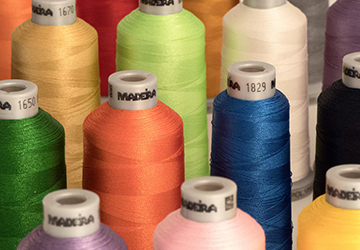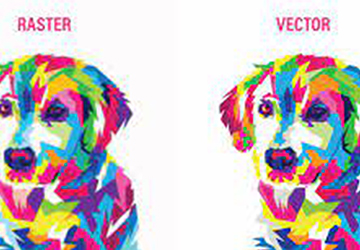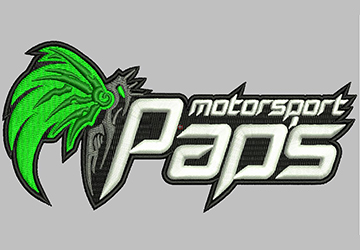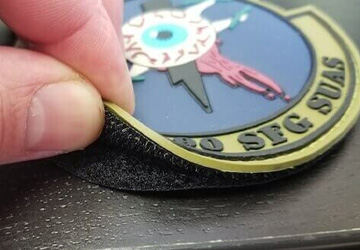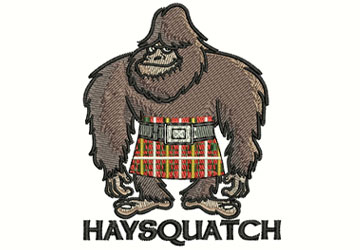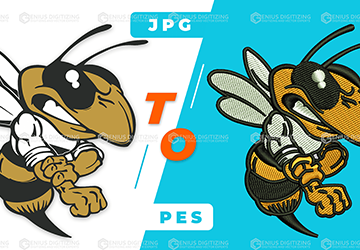Top Embroidery Threads
Embroidery enthusiasts understand the transformative power of threads in elevating their craft. Threads are the lifeblood of embroidery, and knowing the right ones to use can make all the difference in your finished masterpiece. In this comprehensive guide, we delve into the world of embroidery threads, exploring the diverse types available and shedding light on the factors that will help you choose the perfect thread for your project. So, whether you're an experienced stitcher or just starting your embroidery journey, join us as we unravel the secrets of top embroidery threads.
"Threads are the colors of our imagination, weaving dreams into reality, one stitch at a time." - Infinum Digitizing
Selecting the Best Embroidery Thread BrandsWhen it comes to choosing high-quality embroidery thread brands, consider the following factors:
1. Colorfastness:
Ensure that the thread is colorfast to prevent fading and bleeding.
2. Texture:
Opt for threads with a smooth texture and sheen for a polished look.
3. Durability:
Check if the thread is washable and if individual strands are strong and not brittle.
4. Color Variety:
Depending on your project, choose a brand with a wide range of colors to meet your needs.
Top Embroidery Thread BrandsThree reputable brands stand out in the world of embroidery threads:
DMC:
Made in France, DMC offers a vast selection of colors and styles, including cotton floss, pearl cotton, and metallic threads. Their threads are colorfast, durable, and made from 100% Egyptian cotton.
Anchor:
Anchor provides a range of colors and styles, including cotton floss, viscose rayon, and metallic threads. Like DMC, it is made from 100% Egyptian cotton and double mercerized.
J & P Coats:
Known for its smooth finish and soft feel, J & P Coats offers a variety of mercerized embroidery floss made from long staple cotton.
Organizing Your Embroidery Threads Once you've chosen your preferred brand and acquired your threads, it's essential to keep them organized. Explore methods for storing embroidery threads to ensure they remain neat and accessible throughout your creative journey.
"Embroidery threads are the poets of the needle and thread world, crafting verses of color and texture."
Understanding the Types of Embroidery Threads Embroidery threads come in a delightful array of choices, each offering unique qualities to enhance your work. Here are some of the most frequently used types:
1. Stranded Embroidery Cotton (Embroidery Floss)
Stranded embroidery cotton, often referred to as embroidery floss, is the go-to thread for most embroidery work, including cross stitch. This versatile thread consists of six strands wound together in a skein. Depending on your desired effect and fabric, you can use it as a single strand or separate the threads.
2. Perle Cotton (Pearl Cotton)
Perle cotton is slightly heavier than stranded cotton and is available in various weights. A medium-weight perle cotton is suitable for most embroidery needs. This thread is composed of a single strand made by twisting two fibers together, which should not be separated.
3. Rayon Floss (Satin Embroidery Thread)
Rayon floss is known for its vibrant colors and satin-like sheen, making it an attractive choice. However, it can be prone to tangling. To mitigate this, use short lengths and moisten the thread slightly before working with it.
4. Metallic Hand Embroidery Thread
Metallic thread is often used for adding highlights to embroidery or for standalone goldwork. While it can be challenging to work with due to its tendency to tarnish, snag, and fray, its beauty and brilliance are unparalleled. Synthetic metallic threads are an alternative that doesn't tarnish.
5. Crewel Yarn/Wool
Crewel yarn or wool is a natural or acrylic two-ply strand used in wool embroidery, needlepoint, and cross-stitch. It provides a textured effect and is as thick as two strands of embroidery floss.
6. Tapestry Yarn/Persian Yarn
Tapestry yarn is a thick yarn suitable for canvas and heavy materials, often used in needlepoint and crewelwork. Persian Yarn is a similar choice for these embroidery techniques. Felted wool yarn, which has a fuzzy texture, is great for couching in embroidery.
7. Silk Threads
Silk threads are prized for their brilliant shades and are commonly used in fine embroidery. However, they are susceptible to fading and bleeding. A light steam press can enhance their sheen, and silk threads are also used for couching thicker threads on fabric.
8. Knitting Yarn
While primarily used for knitting, some knitting yarns can be used for crochet and other crafts. They come in various thicknesses, known as yarn weights.
9. Variegated Threads (Multi-color Threads)
Variegated threads feature multiple shades of the same color within a single skein. They are available in various fiber types and can create stunning effects when used appropriately.
10. Cord & Beading Thread
Cords are versatile and used for various crafts, including couching embroidery, jewelry making, leather sewing, and more. Beading threads, like nylon and waxed cotton, are durable and ideal for intricate beadwork.
11. Ribbons
Although not traditional threads, ribbons are threaded through needles and used for embroidery in floral designs. There are numerous types of ribbons to choose from, adding a unique texture to your projects.
12. Crochet Thread
Crochet thread, known for its sheen, can be used for crocheting as well as creating beautiful doilies and string art.
13. Sashiko Thread
Sashiko thread is specially designed for Japanese embroidery work called Sashiko. It is strong and durable, making it suitable for clothing repairs and other projects.
14. Light Effects Embroidery Thread
This polyester thread has a shiny, glow-in-the-dark quality and is colorfast and tarnish-resistant, making it ideal for special effects.
Tips for Using Embroidery ThreadsChoosing the right embroidery thread is crucial for the longevity of your work. Here are some essential tips:
- Separate strands before threading your needle to prevent tangles.
- Use short thread lengths (around 25 inches) to minimize abrasion and tangling.
- Identify the grain of the thread for easier needle threading.
- Prewash your fabric and thread to prevent color bleeding.
- Invest in reputable brands for high-quality threads.
In conclusion, the world of embroidery threads is rich and diverse, offering endless possibilities for your creative projects. By understanding the types of threads available, considering key factors like colorfastness and texture, and selecting reputable brands, you can elevate your embroidery skills to new heights. Remember, the choice of thread can make all the difference between a good embroidery project and a masterpiece. So, let your creativity shine with the perfect embroidery threads from Infinum Digitizing and watch your creations come to life. Happy stitching!
When it comes to choosing high-quality embroidery thread brands, consider the following factors:
1. Colorfastness:
Ensure that the thread is colorfast to prevent fading and bleeding.
2. Texture:
Opt for threads with a smooth texture and sheen for a polished look.
3. Durability:
Check if the thread is washable and if individual strands are strong and not brittle.
Depending on your project, choose a brand with a wide range of colors to meet your needs.
Three reputable brands stand out in the world of embroidery threads:
DMC:
Made in France, DMC offers a vast selection of colors and styles, including cotton floss, pearl cotton, and metallic threads. Their threads are colorfast, durable, and made from 100% Egyptian cotton.
Anchor:
Anchor provides a range of colors and styles, including cotton floss, viscose rayon, and metallic threads. Like DMC, it is made from 100% Egyptian cotton and double mercerized.
J & P Coats:
Known for its smooth finish and soft feel, J & P Coats offers a variety of mercerized embroidery floss made from long staple cotton.
Organizing Your Embroidery Threads Once you've chosen your preferred brand and acquired your threads, it's essential to keep them organized. Explore methods for storing embroidery threads to ensure they remain neat and accessible throughout your creative journey.
"Embroidery threads are the poets of the needle and thread world, crafting verses of color and texture."
Understanding the Types of Embroidery Threads Embroidery threads come in a delightful array of choices, each offering unique qualities to enhance your work. Here are some of the most frequently used types:
1. Stranded Embroidery Cotton (Embroidery Floss)
Stranded embroidery cotton, often referred to as embroidery floss, is the go-to thread for most embroidery work, including cross stitch. This versatile thread consists of six strands wound together in a skein. Depending on your desired effect and fabric, you can use it as a single strand or separate the threads.
2. Perle Cotton (Pearl Cotton)
Perle cotton is slightly heavier than stranded cotton and is available in various weights. A medium-weight perle cotton is suitable for most embroidery needs. This thread is composed of a single strand made by twisting two fibers together, which should not be separated.
3. Rayon Floss (Satin Embroidery Thread)
Rayon floss is known for its vibrant colors and satin-like sheen, making it an attractive choice. However, it can be prone to tangling. To mitigate this, use short lengths and moisten the thread slightly before working with it.
4. Metallic Hand Embroidery Thread
Metallic thread is often used for adding highlights to embroidery or for standalone goldwork. While it can be challenging to work with due to its tendency to tarnish, snag, and fray, its beauty and brilliance are unparalleled. Synthetic metallic threads are an alternative that doesn't tarnish.
5. Crewel Yarn/Wool
Crewel yarn or wool is a natural or acrylic two-ply strand used in wool embroidery, needlepoint, and cross-stitch. It provides a textured effect and is as thick as two strands of embroidery floss.
6. Tapestry Yarn/Persian Yarn
Tapestry yarn is a thick yarn suitable for canvas and heavy materials, often used in needlepoint and crewelwork. Persian Yarn is a similar choice for these embroidery techniques. Felted wool yarn, which has a fuzzy texture, is great for couching in embroidery.
7. Silk Threads
Silk threads are prized for their brilliant shades and are commonly used in fine embroidery. However, they are susceptible to fading and bleeding. A light steam press can enhance their sheen, and silk threads are also used for couching thicker threads on fabric.
8. Knitting Yarn
While primarily used for knitting, some knitting yarns can be used for crochet and other crafts. They come in various thicknesses, known as yarn weights.
9. Variegated Threads (Multi-color Threads)
Variegated threads feature multiple shades of the same color within a single skein. They are available in various fiber types and can create stunning effects when used appropriately.
10. Cord & Beading Thread
Cords are versatile and used for various crafts, including couching embroidery, jewelry making, leather sewing, and more. Beading threads, like nylon and waxed cotton, are durable and ideal for intricate beadwork.
11. Ribbons
Although not traditional threads, ribbons are threaded through needles and used for embroidery in floral designs. There are numerous types of ribbons to choose from, adding a unique texture to your projects.
12. Crochet Thread
Crochet thread, known for its sheen, can be used for crocheting as well as creating beautiful doilies and string art.
13. Sashiko Thread
Sashiko thread is specially designed for Japanese embroidery work called Sashiko. It is strong and durable, making it suitable for clothing repairs and other projects.
14. Light Effects Embroidery Thread
This polyester thread has a shiny, glow-in-the-dark quality and is colorfast and tarnish-resistant, making it ideal for special effects.
Tips for Using Embroidery ThreadsChoosing the right embroidery thread is crucial for the longevity of your work. Here are some essential tips:
- Separate strands before threading your needle to prevent tangles.
- Use short thread lengths (around 25 inches) to minimize abrasion and tangling.
- Identify the grain of the thread for easier needle threading.
- Prewash your fabric and thread to prevent color bleeding.
- Invest in reputable brands for high-quality threads.
In conclusion, the world of embroidery threads is rich and diverse, offering endless possibilities for your creative projects. By understanding the types of threads available, considering key factors like colorfastness and texture, and selecting reputable brands, you can elevate your embroidery skills to new heights. Remember, the choice of thread can make all the difference between a good embroidery project and a masterpiece. So, let your creativity shine with the perfect embroidery threads from Infinum Digitizing and watch your creations come to life. Happy stitching!
Once you've chosen your preferred brand and acquired your threads, it's essential to keep them organized. Explore methods for storing embroidery threads to ensure they remain neat and accessible throughout your creative journey.
"Embroidery threads are the poets of the needle and thread world, crafting verses of color and texture."
Embroidery threads come in a delightful array of choices, each offering unique qualities to enhance your work. Here are some of the most frequently used types:
1. Stranded Embroidery Cotton (Embroidery Floss)
Stranded embroidery cotton, often referred to as embroidery floss, is the go-to thread for most embroidery work, including cross stitch. This versatile thread consists of six strands wound together in a skein. Depending on your desired effect and fabric, you can use it as a single strand or separate the threads.
2. Perle Cotton (Pearl Cotton)
Perle cotton is slightly heavier than stranded cotton and is available in various weights. A medium-weight perle cotton is suitable for most embroidery needs. This thread is composed of a single strand made by twisting two fibers together, which should not be separated.
3. Rayon Floss (Satin Embroidery Thread)
Rayon floss is known for its vibrant colors and satin-like sheen, making it an attractive choice. However, it can be prone to tangling. To mitigate this, use short lengths and moisten the thread slightly before working with it.
4. Metallic Hand Embroidery Thread
Metallic thread is often used for adding highlights to embroidery or for standalone goldwork. While it can be challenging to work with due to its tendency to tarnish, snag, and fray, its beauty and brilliance are unparalleled. Synthetic metallic threads are an alternative that doesn't tarnish.
5. Crewel Yarn/Wool
Crewel yarn or wool is a natural or acrylic two-ply strand used in wool embroidery, needlepoint, and cross-stitch. It provides a textured effect and is as thick as two strands of embroidery floss.
6. Tapestry Yarn/Persian Yarn
Tapestry yarn is a thick yarn suitable for canvas and heavy materials, often used in needlepoint and crewelwork. Persian Yarn is a similar choice for these embroidery techniques. Felted wool yarn, which has a fuzzy texture, is great for couching in embroidery.
7. Silk Threads
Silk threads are prized for their brilliant shades and are commonly used in fine embroidery. However, they are susceptible to fading and bleeding. A light steam press can enhance their sheen, and silk threads are also used for couching thicker threads on fabric.
8. Knitting Yarn
While primarily used for knitting, some knitting yarns can be used for crochet and other crafts. They come in various thicknesses, known as yarn weights.
9. Variegated Threads (Multi-color Threads)
Variegated threads feature multiple shades of the same color within a single skein. They are available in various fiber types and can create stunning effects when used appropriately.
10. Cord & Beading Thread
Cords are versatile and used for various crafts, including couching embroidery, jewelry making, leather sewing, and more. Beading threads, like nylon and waxed cotton, are durable and ideal for intricate beadwork.
11. Ribbons
Although not traditional threads, ribbons are threaded through needles and used for embroidery in floral designs. There are numerous types of ribbons to choose from, adding a unique texture to your projects.
12. Crochet Thread
Crochet thread, known for its sheen, can be used for crocheting as well as creating beautiful doilies and string art.
13. Sashiko Thread
Sashiko thread is specially designed for Japanese embroidery work called Sashiko. It is strong and durable, making it suitable for clothing repairs and other projects.
14. Light Effects Embroidery Thread
This polyester thread has a shiny, glow-in-the-dark quality and is colorfast and tarnish-resistant, making it ideal for special effects.
Tips for Using Embroidery ThreadsChoosing the right embroidery thread is crucial for the longevity of your work. Here are some essential tips:
- Separate strands before threading your needle to prevent tangles.
- Use short thread lengths (around 25 inches) to minimize abrasion and tangling.
- Identify the grain of the thread for easier needle threading.
- Prewash your fabric and thread to prevent color bleeding.
- Invest in reputable brands for high-quality threads.
In conclusion, the world of embroidery threads is rich and diverse, offering endless possibilities for your creative projects. By understanding the types of threads available, considering key factors like colorfastness and texture, and selecting reputable brands, you can elevate your embroidery skills to new heights. Remember, the choice of thread can make all the difference between a good embroidery project and a masterpiece. So, let your creativity shine with the perfect embroidery threads from Infinum Digitizing and watch your creations come to life. Happy stitching!
Choosing the right embroidery thread is crucial for the longevity of your work. Here are some essential tips:
- Separate strands before threading your needle to prevent tangles.
- Use short thread lengths (around 25 inches) to minimize abrasion and tangling.
- Identify the grain of the thread for easier needle threading.
- Prewash your fabric and thread to prevent color bleeding.
- Invest in reputable brands for high-quality threads.
In conclusion, the world of embroidery threads is rich and diverse, offering endless possibilities for your creative projects. By understanding the types of threads available, considering key factors like colorfastness and texture, and selecting reputable brands, you can elevate your embroidery skills to new heights. Remember, the choice of thread can make all the difference between a good embroidery project and a masterpiece. So, let your creativity shine with the perfect embroidery threads from Infinum Digitizing and watch your creations come to life. Happy stitching!
"Choosing the perfect thread is like selecting the right note in a symphony - it defines the harmony of your embroidery." - Infinum Digitizing


